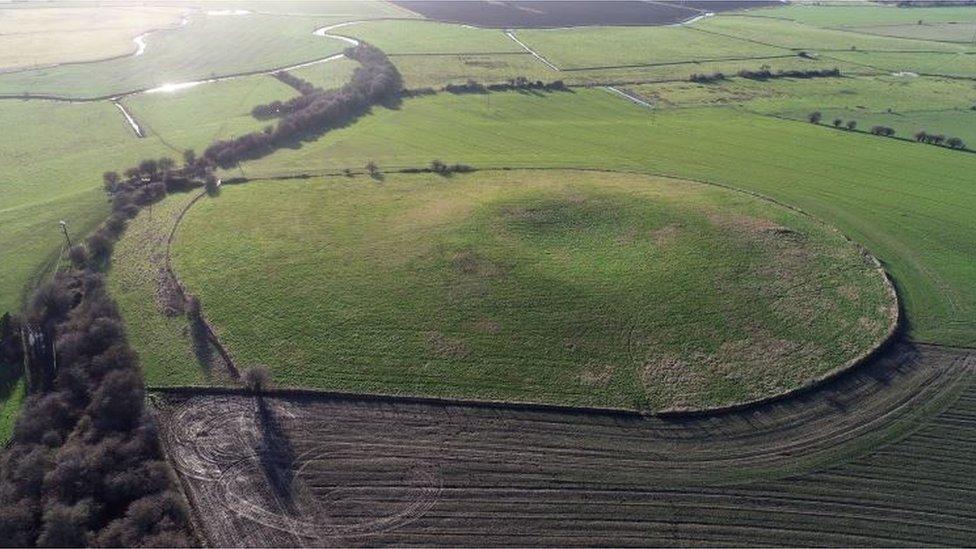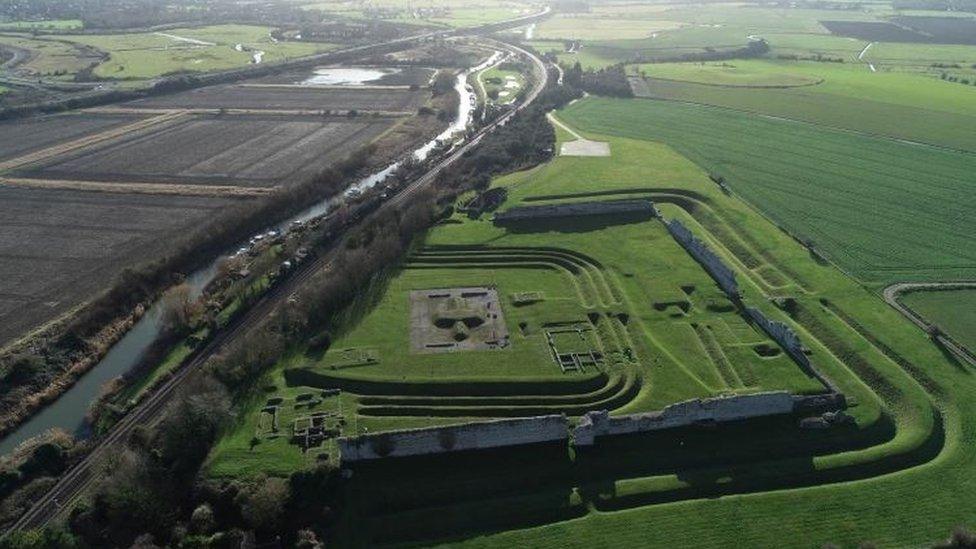Richborough Roman amphitheatre dig: 'Once in lifetime' opportunity
- Published

All that remains above the ground is a mound of earth which is evidence of the ampitheatre
An amphitheatre under the ground at one of England's most important Roman sites is to be excavated by archaeologists.
Wild animal hunts, executions and gladiatorial combat are believed to have taken place in the arena at Richborough, Kent.
To the naked eye it appears as a mound in a field.
English Heritage senior properties historian Paul Pattison said the dig was a "once-in-a-lifetime opportunity" to "unlock the story".
The charity hopes to discover when it was built, what it looked like, more about how it was used and what happened when the Romans abandoned it.

The fort at Richborough is a key site in the history of Roman Britain
The nearby Roman fort is a key site in the history of Roman Britain, used from the invasion of 43 AD until the end of Roman rule around 410.
A Victorian excavation in 1849 revealed a skeleton in the amphitheatre, raising the question of whether it became a cemetery.
Mr Pattison said: "The impressive ruins and the enormous, rich collection of finds from previous excavations place the settlement at Richborough amongst the most important Roman historical and archaeological sites in England.
"However, until now its amphitheatre's secrets have remained hidden below the surface."
He described the dig as a "once-in-a-lifetime opportunity" to "reveal these ancient remains, analyse the clues left by the Romans and finally unlock its story".
Excavation of the amphitheatre and its surrounds will begin in late March.
The site will open to the public in spring 2021.